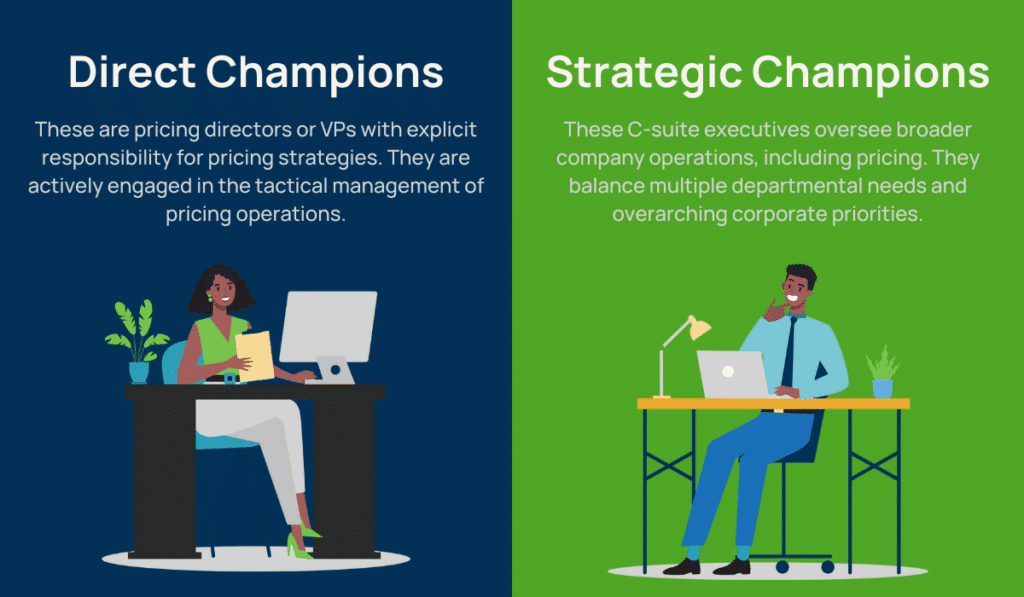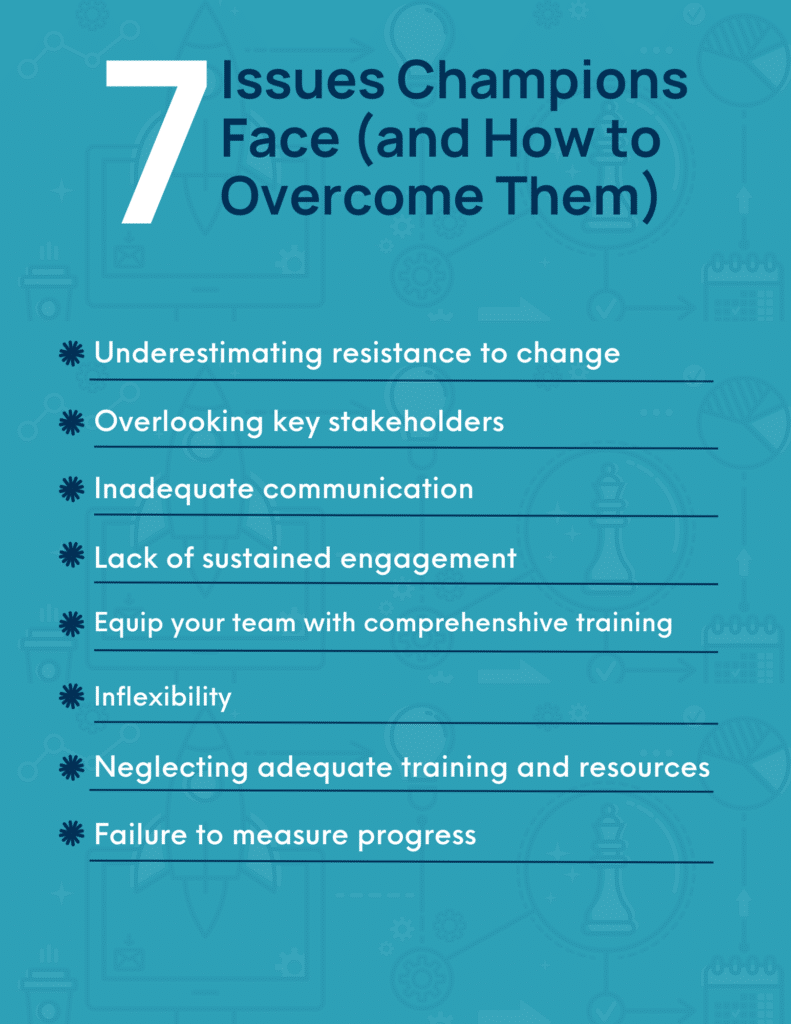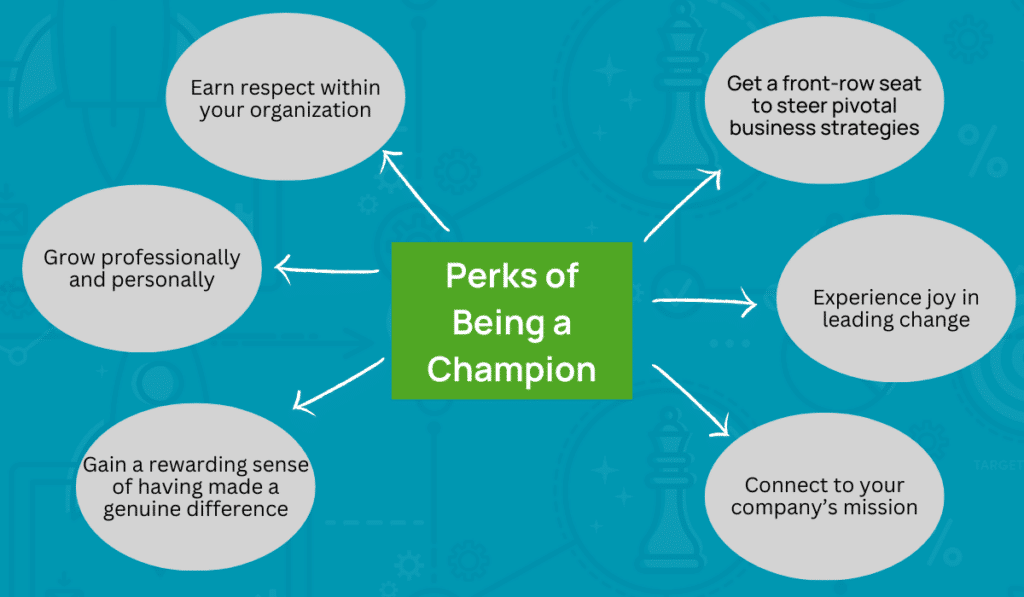
Champions are the heart and soul behind the transformative shifts that redefine companies. Their passion and leadership ensure that teams are motivated and aligned, making continuous improvement a standard part of the organizational culture. In this article, Mitch Lee, Profit Evangelist at Vendavo, explains the role of a champion in business process improvements, the perks they offer in their roles, and how to navigate the pitfalls that come with any strategic shift.
Every organization has unsung heroes whose strategic vision and relentless pursuit of efficiency turn the wheels of progress. These champions are behind the business process improvements that take organizations from ordinary to extraordinary.
While often behind the scenes, their role is pivotal in navigating the people, processes, and technology needed to deliver tangible outcomes. They ignite sparks of change and act as a bridge between practical execution and an organization’s strategic ambitions.
Let’s explore how champions act as catalysts for change, drive projects that enhance operational efficiency, and foster a culture of continuous improvement and innovation.
Who is a Champion?
In business process improvements, a champion is typically someone who handles pricing strategies or influences profitability through a role in management, sales, finance, or even production.
They often emerge in two main categories:

- Direct champions
These are pricing directors or VPs with explicit responsibility for pricing strategies. They are actively engaged in the tactical management of pricing operations.
- Strategic champions
These C-suite executives oversee broader company operations, including pricing. They balance multiple departmental needs and overarching corporate priorities.
These individuals understand day-to-day challenges and have the influence to make significant changes. That’s crucial in getting a business process improvement underway.
Driving Change through Vision and Influence
A successful business improvement initiative depends on a champion’s ability to visualize the end goal and persuade others to embark on the journey toward change. Champions have to paint a vivid picture of potential improvements and their impact on bottom line and broader operational efficiency.
Champions:
- Identify inefficiencies in current processes
- Pinpoint areas where strategic changes can lead to significant improvements
- Set a clear vision that aligns with organizational goals
- Communicate effectively to ensure stakeholders are on board
- Align that vision with team members’ personal motivations
- Disseminate information about the benefits and changes coming their way
- Build consensus and commitment across various departments
- Encourage understanding and support for the proposed changes
- Inspire and motivate teams to adopt new practices
- Maintain momentum post-implementation
- Make sure changes are sustainable and continue to deliver results
They invest time, resources, and political capital within the organization. Champions navigate the dynamics of C-suite discussions and boardroom debates, advocating for strategic investments for better efficiency and profitability.
Practical Steps for Champions in Action
A champion takes decisive action to enhance a business process improvement project. But they need to be strategic here. The right approach can help them overcome common pitfalls, ensure sustained success, and keep the project aligned with organizational goals.
Here are some ways champions make a difference:

- Stakeholder analysis – Identify and understand all stakeholders’ interests and influence. Map out who will be affected by the changes, who can influence them, and how they are likely to react.
- Clear and compelling communication – Consistent messaging about the project’s benefits and necessities should be tailored to each audience. Regular updates and transparent discussions keep everyone aligned and committed.
- Establishing a tangible vision – Champions need to link the project to broader strategic goals. This vision should be broken down into achievable, measurable objectives that serve as benchmarks for success.
- Fostering a culture of collaboration – You need an environment that encourages open dialogue and collaborative problem-solving. Involve team members in decision-making processes for diverse perspectives and expertise, plus greater ownership of the project.
- Providing resources and support – Your team needs the right tools, training, and resources to adapt to new processes and minimize barriers to adoption. This might include formal training, new technologies, or consulting with external experts.
- Flexibility and adaptability – Champions need to be flexible and open to adjusting based on feedback and circumstances. This can prevent the project from stalling due to unforeseen challenges or shifts in business priorities.
- Implementing change management best practices – A structured approach to change management can help smooth transitions to new processes. This includes preparing detailed change management plans, conducting impact analyses, and developing comprehensive risk management strategies.
- Measuring progress and impact – You need to measure and report on the project’s progress against the defined objectives. This helps keep the project on track and validates the efforts and outcomes.
- Celebrating successes – Acknowledging and celebrating key milestones reinforces the value of the change and rewards the team’s hard work. This can boost morale and encourage continued engagement and enthusiasm for the project.
By taking these steps, champions can increase the likelihood that their business process improvement projects will succeed. Those successes may also become catalysts for ongoing improvement and innovation within their organizations.
The Issues Champions Face (and How to Overcome Them)
The road to successful business process improvement is complex. That means champions, despite their best efforts and intentions, can face several potential pitfalls:

- Underestimating the resistance to change
Change is often met with resistance, typically because of comfort with the status quo, fear of the unknown, or perceived threats to power structures. Champions may have to fight inertia and skepticism, which can derail momentum.
- Overlooking key stakeholders
It might make sense to focus efforts on convincing top-level executives or direct reports, but neglecting other crucial stakeholders can lead to a lack of buy-in across the organization. This can make implementation of new processes tricky.
- Inadequate communication
Champions need to communicate the vision and strategic steps clearly to avoid misalignment. If team members don’t understand the why and how behind your changes, you may see half-hearted implementation efforts.
- Lack of sustained engagement
Initial enthusiasm can fade as the novelty of the project wears off. Champions need to keep the team motivated. Not doing so can result in old habits creeping back in once the project’s immediate intensity dies down.
- Inflexibility
Having a clear vision is crucial, but being too rigid about how you achieve it can be counterproductive. Champions must be adaptable and shift strategies amid feedback and changing conditions without losing sight of the ultimate goals.
- Neglecting adequate training and resources
Implementing new processes often requires new skills or understanding. The right training and resources helps the process improvement take root and keeps employees from struggling with adoption.
- Failure to measure progress
You need clear metrics for success and regular updates to track accomplishments. Champions should establish measurable milestones and celebrate them to build momentum and reinforce the value of the changes being implemented.
Navigating these pitfalls requires strategic foresight, constant communication, and an empathetic understanding of the human behind organizational change. Without a champion to keep issues in check, your business process improvement could fizzle out.
The Champion as a Catalyst for Transformation
Champions are the heart and soul behind the transformative shifts that redefine companies. They’re not just about putting new ideas into action. They ignite a culture where innovation isn’t just welcomed, it’s celebrated.
Think of champions as the bridge between a bold vision and real-world results, blending strategy with a knack for getting things done. And when they succeed, they get promoted and elevate their entire team.
The perks of being a champion go beyond just job satisfaction. As a champion you have the power to:

- Grow professionally and personally
- Earn respect within your organization
- Get a front-row seat to steer pivotal business strategies
- Experience joy in leading change
- Connect to your company’s mission
- Gain a rewarding sense of having made a genuine difference
Champions play a pivotal role in business process improvements by harnessing their deep understanding of organizational goals to drive and implement change. Their leadership ensures that teams are motivated and aligned, making continuous improvement a standard of your entire culture.
Ready to take your organization’s growth and profitability to the next level? Reach out today to speak with a Vendavo expert about how our complete growth and profitability suite with AI solutions for revenue optimization, CPQ, and rebate management can help.
